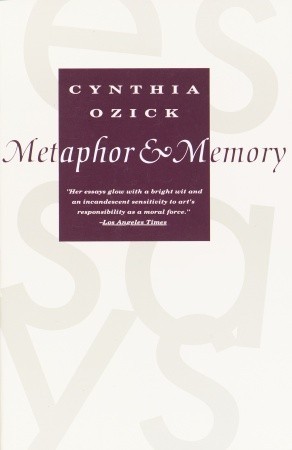What do you think?
Rate this book


300 pages, Paperback
First published January 1, 1989
an adjective that had to be invented for the new voice Chekhov's genius breathed into the world—elusive, inconclusive, flickering; nuanced, through an underlying disquiet, though never morbid or disgruntled; unerringly intuitive, catching out of the air mute inferences, glittering motes, faint turnings of the heart, tendrils thinner than hairs, drift. But Chekhov's art is more than merely Chekhovian.
...a species of polytheism, or rather, animism: every grain of matter, every path of conception, has its own ruling spirit, its differentiated lawgiver and traffic director.that it is to say, as splinters or shards of meaning, it is fortunate that she moves on to wonder at how the Humanities, the "Belles Lettres, the literary culture has splintered and lost:
...a concordant language of sensibility, an embracing impulse towards integration, above all the conviction of human connectedness [...a] feeling for literary culture as a glowing wholeness.. What is worse, Ozick laments, is that
In the ex-community of letters, factions are in fashion, and the function of factions is to despise [...] English departments have set off theory after theory, and use culture as an instrument to illustrate doctrinal principles, whether Marxist or "French Freud."Some of the most successful essays, like On Permission to Write or the achingly outstanding The Seam of a Snail, simultaneously an eulogy on her larger than life and generous to a fault mother and a terrifying, almost grotesque self-portrait:
I am a kind of human snail, locked in and condemned by my own nature. The ancients believed that the moist track left by the snail as it crept was the snail's own essence, depleting its body little by little; the farther the snail toiled, the smaller it became, until it finally rubbed itself out.This personal glimpse into the author, doesn't always work as well, in Washington Square, 1946, she recalls her awe-struck first (well actually day before first) visit to where she would go to college, and marvels at the wonder of how the world opened up to her as she blossomed intellectually since then -but somehow the essay does not quite jell, perhaps the reader is left outside the college or even misses Washington Square.
...whether biography vis-á-vis the novel is vitally intact or fractured -is in short, master or apprentice...A must read.
...Greece was a society that paid no attention to the moral life [...] The Greeks were not only not universalists; they scorned the idea. They were proud of scorning despising the stranger [...] As a society they never undertook to imagine what it was to be the Other; the Outsider; the alien,; the slave; the oppressed; the sufferer; the outcast; the opponent; the barbarian who owns feelings and deserves rights.this sweeps away the key role and importance of almost the whole of Greek tragedy as a communal experience, it particularly chooses to ignore the tragedy of Oedipus or Promethus Bound, those alien Outsiders or the astonishing empathetic choruses in Aeschylus' Persians or Suppliants. And as to the supposed lack of universalism and the lack of attention to the moral life, where does this leave, for example, Plato's The Symposium or The Republic or Aristoteles' Nicomachean Ethics? The leap is disquieting and unsatisfactory in another sense; it leads Ozick into what appears to be the flip side of Nietzche's notorious chastisements of what he termed to be the slave moralities of judeo-christian tradition in Beyond Good and Evil and The Genealogy of Morals. Talking of Nietzsche, Ozick's characterization of Greek culture as being based on the Delphic Oracle, also appears to collapse the apollinean and dionysian distinction postulated by Nietzsche into the dionysian. I am also chary and skeptical of Ozick's key assertion that "Inspiration has no memory", without memory, metaphor collapses into the absurdity or surrealism of an umbrella on an operating table or a raven as a writing desk.